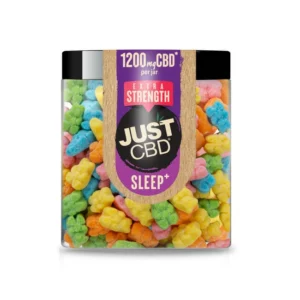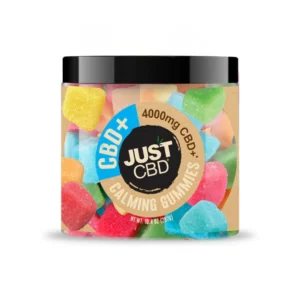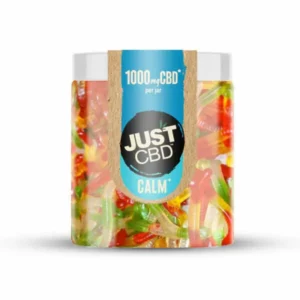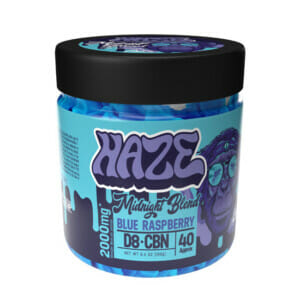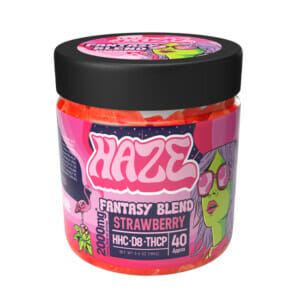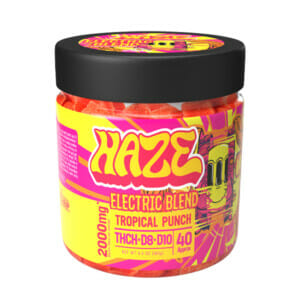Too Stoned? Here’s How to Sober Up Safely & Effectively
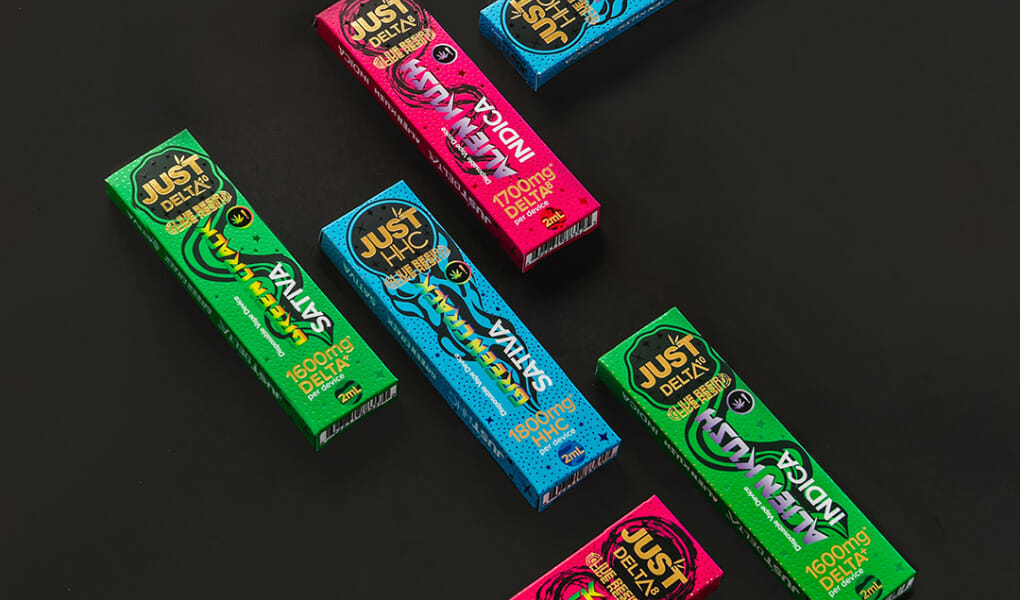
In the world of cannabis, a few puffs or a single bite can lead you on a journey to a heightened state of consciousness. But what if that journey takes an unexpected turn, and you feel too high? Whether it’s your first time or you’re a seasoned user, we’ve all been there. How to get unhigh? This ultimate guide explores effective strategies to help you sober up from a cannabis high and regain control of your experience.
Signs You’re Too High
When you’ve consumed too much cannabis, whether through smoking, edibles, or other forms, it’s important to recognize the signs and know how to respond effectively. Being “too high” can be an uncomfortable experience, but with the right knowledge and approach, you can navigate this situation safely.
Recognizing the Signs
1. Anxiety or Paranoia:
A common sign of consuming too much cannabis is an increase in anxiety or feelings of paranoia. You might feel overly worried about things that wouldn’t usually bother you.
2. Impaired Motor Skills:
Difficulty with coordination and motor skills is another indicator. You might struggle to walk steadily, grasp objects, or perform routine physical tasks.
3. Altered Perception:
Experiencing altered sensory perceptions, such as intensified colors or sounds, can be a sign you’re too high. Time might seem to slow down or speed up.
4. Rapid Heart Rate:
A significant increase in your heart rate or palpitations can occur when you consume too much.
5. Difficulty Concentrating:
You may find it hard to focus, follow conversations, or remember things.
5. Nausea or Vomiting:
In some cases, being too high can lead to physical discomfort, including nausea.
8 Tips to Bring Down Your High
When an individual consumes cannabis, the psychological effects can vary widely, depending on factors like the strain of cannabis, the amount consumed, individual tolerance, and the person’s mental state at the time of consumption. A common experience for many is a heightened state of anxiety or panic, particularly in those who are new to cannabis or who have consumed a larger quantity than they are accustomed to.
The Role of THC and CBD
The two primary active compounds in cannabis, THC (tetrahydrocannabinol) and CBD (cannabidiol) play significant roles in how one reacts psychologically to cannabis. THC is known for its psychoactive effects, which can induce feelings of euphoria but can also lead to increased anxiety and paranoia in some individuals. In contrast, CBD is non-psychoactive and is often associated with reducing anxiety and promoting relaxation.
The Importance of Relaxation
Relaxation is not just about alleviating immediate discomfort; it’s about ensuring a positive overall experience with cannabis. Techniques such as guided relaxation, meditation, or even taking a warm bath can aid in creating a more tranquil state of mind.
When to Seek Help
If anxiety becomes overwhelming or persists, it’s important to seek professional help. Remember, everyone’s experience with cannabis is unique, and what works for one person may not work for another. The goal is to find a balance and approach that allows you to enjoy the benefits of cannabis while minimizing any negative psychological effects.
8 Tips to Bring Down Your High
Cannabis, a plant that has been used for centuries, can provide both therapeutic and recreational experiences. However, sometimes the high it produces can be too intense, leading to discomfort and anxiety. If you’ve ever found yourself in this situation, fear not. This guide delves into eight effective strategies to bring down a cannabis high and make the experience more enjoyable.
Learn More: Delta 8 Sativa vs. Indica vs. Hybrid strains: what’s the difference?
1. Don’t Panic:
Picture this: you’ve taken a hit or consumed an edible, and suddenly, the world feels slightly more intense than you bargained for. The first rule of thumb is simple yet essential: don’t panic. Panicking only serves to magnify the negative feelings and can contribute to making the experience even more uncomfortable. Remember that cannabis won’t cause an overdose; the effects will naturally subside.
2. RELAX, REST, OR SLEEP: Embrace the Tranquility
One of the distinct characteristics of a cannabis high is a profound sense of relaxation. If you find yourself overwhelmed, find an offer, and safe space, lie down, and close your eyes. Embrace the tranquillity that cannabis can offer and allow your body’s natural response to rest to complement the high. Sleep can be a remarkably effective way to let the intensity of the high wear off. You might wake up feeling refreshed and reconnected with reality.
3. SHIFT YOUR FOCUS:
When your mind is racing, and the high feels too intense, consider shifting your focus. Engaging your senses in different activities can help take your mind off the overwhelming sensations. A leisurely walk outdoors, immersing yourself in a captivating movie or book, or even attempting light household chores can provide a much-needed distraction. However, steer clear of tasks that demand quick thinking or sound judgment, as cannabis can temporarily impair these cognitive functions.
4. Use CBD:
CBD, or cannabidiol, is a cannabinoid known for its ability to counteract some of the mind-altering effects of THC. Unlike THC, CBD doesn’t bind strongly to the CB1 receptors responsible for the intense high. By introducing CBD into your system through drops or vaping, you can potentially mitigate the overpowering effects of THC and restore a sense of equilibrium to your experience.
5. TRY AROMATHERAPY:
Did you know that the aromas of certain terpenes found in cannabis can have calming properties? Limonene, caryophyllene, and pinene are examples of terpenes. Incorporating aromatherapy or consuming foods rich in these terpenes can help alleviate anxiety and reduce the overall intensity of the high. However, it’s important to exercise caution when using essential oils and terpenes, as they are potent substances that should be used mindfully.
Learn More: How long does a weed high last in the body, and how long do weed effects last?
6. KEEP YOURSELF HYDRATED:
Cannabis leaves you with a dry mouth and eyes, making the high even more uncomfortable. Staying hydrated by drinking water quenches your thirst and helps alleviate these symptoms. Hydration can ease the sensation of being excessively high, contributing to a more manageable experience. It’s worth noting that alcohol should be avoided, as it can intensify THC levels in your bloodstream and exacerbate the situation.
7. GRAB A LIGHT SNACK:
Grabbing a light snack can serve multiple purposes when the high is hitting hard. Firstly, it can divert your attention from the overwhelming effects, allowing you to focus on something else. Secondly, consuming a snack, especially something healthy like fruits or vegetables, can help prevent edibles from impacting you too intensely. Lastly, satisfying your hunger can help stabilize your overall state of being.
8. ALERT A FRIEND:
Should you grapple with an overpowering high, don’t hesitate to contact a trusted friend. Having a sober companion by your side can offer much-needed comfort and reassurance. Sometimes, all it takes is their presence to provide security. Additionally, they can offer assistance and guidance if the situation escalates beyond your control.
Learn More: What are the benefits of THCA cannabinoids?
Experiencing an intense cannabis high doesn’t have to be a daunting experience. By embracing these eight strategies, you can effectively manage and bring down the intensity of the high, allowing you to regain control of your experience. Remember, each person’s response to cannabis is unique, so don’t be discouraged if it takes a bit of trial and error to find the best strategy for you. Ultimately, the key is to prioritize your well-being and ensure that every cannabis journey is enjoyable and enlightening.
How Do You Get Too High?
Cannabis contains THC, the primary psychoactive compound responsible for the high. When you consume cannabis, THC binds strongly to CB1 receptors in the brain, particularly in areas associated with pleasure and reward. This binding leads to the mind-altering effects of cannabis. However, when CB1 receptors are overstimulated, it can result in undesirable side effects such as anxiety, confusion, dizziness, and hallucinations.
Precautions for Beginners: Dosage and Potency
Embarking on your cannabis journey can be an exciting experience, but it’s crucial to approach it with a sense of caution and awareness, especially regarding dosage and potency. Here are some key pointers to help beginners navigate this new territory safely and effectively:
1. Understanding Potency:
Different strains of cannabis have varying levels of THC and CBD. Indica, Sativa, and Hybrid strains each offer a different balance of these compounds. Beginners should start with strains that have a lower THC content and a higher CBD content to reduce the intensity of the psychoactive effects.
2. Dosage Guidelines:
- Start Low and Go Slow
The key rule for cannabis consumption, especially for beginners, is to start with a very low dose and wait to see its effects. Depending on the method of consumption, it can take from minutes to hours to feel the full effects.
- Different Forms, Different Norms
Smoking or vaping cannabis produces effects more quickly than edibles. Edibles can be particularly unpredictable in terms of how long they take to kick in and how potent the effects are. Therefore, if you choose edibles, be particularly conservative with your initial doses.
3. Choosing Your Method:
- Smoking and Vaping
These methods allow for more control over dosage since the effects are felt almost immediately.
- Edibles and Tinctures
These methods offer a smoke-free alternative but require more caution in dosing. Start with the lowest available dose and be patient.
Learn More: What are the benefits of THCA cannabinoids?
5 Tips to Stay Safe, Especially for Beginners
Diving into the world of cannabis can be a thrilling adventure, but it’s important to approach it with caution, especially if you’re a newcomer. To ensure a positive and safe experience, here are five essential tips that every beginner should keep in mind.
1. SMOKE WEED WITH TRUSTED FRIENDS:
Embarking on a cannabis journey with trusted friends can make a difference. Consuming cannabis in the company of individuals you know and trust creates a supportive environment. If you face an unexpectedly intense high, your friends can offer reassurance and help you navigate the situation. Having a friend by your side can be incredibly comforting, providing emotional support and practical assistance if needed.
2. KNOW THE STRAIN AND ITS EXPECTED EFFECTS:
Before partaking in cannabis, educating yourself about the strain you’re consuming is crucial. Different strains contain varying levels of THC and other compounds, significantly determining the high you’ll experience. Researching and understanding the strain can help you anticipate its effects and prepare accordingly. Reading reviews and seeking guidance from experienced users can help you choose strains that align with your desired effects, ensuring a more tailored and enjoyable experience.
3. BE EXTRA CAREFUL WITH EDIBLES & CONCENTRATES: Tread Lightly
Edibles and concentrates hold a unique potency that can lead to a more intense high than smoking. For beginners, it’s wise to exercise caution when exploring these options. Start with small amounts to avoid overwhelming effects that may catch you off guard. Remember, the effects of edibles and concentrates can take longer than smoking, so patience is key. Taking it slow with these potent forms of cannabis can help you better manage the intensity of the high.
4. START LOW; GO SLOW:
Whether smoking or consuming edibles, the golden rule is to start low and go slow. This principle is essential to prevent an uncomfortably strong high. For smoking, take small, controlled hits and allow time between each one to assess how your body reacts. Regarding edibles, start with a fraction of the recommended dose and wait for at least an hour before consuming more. Rushing to consume larger amounts can easily lead to an overwhelming experience that might dampen your enjoyment.
Learn More: How long does a weed high last in the body?
5. KNOW YOUR LIMIT:
Perhaps the most important tip for any cannabis user, especially beginners, is to know your limit. Every individual responds differently to cannabis, and what works for one person might not work for another. If the high is becoming too intense, listen to your body and know when to stop. Pushing yourself beyond your comfort zone can lead to unpleasant side effects, including anxiety and paranoia. Remember, the goal is to have an enjoyable experience that leaves you feeling relaxed and content.
Learn More: How Long Does It Take for Delta 10 To Kick In?
Embarking on a cannabis journey can be an exciting endeavor, but it’s essential to prioritize safety and responsibility. By smoking with trusted friends, understanding the strain you’re consuming, being cautious with edibles and concentrates, starting with a low dose, and knowing your limit, you’ll be well-equipped to navigate the world of cannabis in a way that ensures your well-being and maximizes your enjoyment. As you gain more experience, you’ll find the right balance that suits your preferences and allows you to embrace the many facets of the cannabis experience fully.
Final Thoughts — Sober Up from the High Safely
Feeling too high can be unsettling, but remember that the effects will eventually wear off. The tips in this guide offer a range of strategies to help you manage the intensity of the high and regain control of your experience. Whether relaxing, using CBD, or seeking support from friends, prioritize your well-being and remember that you’re not alone in navigating the world of cannabis highs. So, the next time you find yourself soaring too high, refer to this guide and take steps to bring yourself back down to earth.



